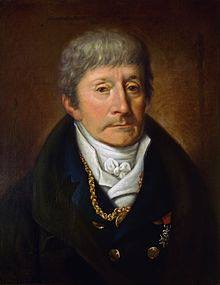Mozart and Salieri. Whole books, Broadway and West End plays, and an Oscar-winning movie have been conjured of the purported rivalry and animosity between Antonio Salieri and Wolfgang Amade’ Mozart.
Was there a rivalry? Yes.
Did Salieri poison Mozart or contribute to his early death? No. That is a fable.
Yet one more Mozart myth.
What was the real relationship between the composers?
It was cordial, competitive and collegial.
By the time Wolfgang Mozart arrived in Vienna in summer 1781, Antonio Salieri was already ensconced as Court Composer and Kapellmeister. Salieri’s operas were being produced, were popular, many enjoying numerous performances. Salieri had virtually nothing to fear from Mozart.
In fact, it was actually Mozart who was jealous of Salieri, not the other way around.
Mozart is documented in a letter to have written about the “Italians” and their “cabals” to keep some of Mozart’s operas off the stage. Mozart mentioned Salieri by name and discussed Salieri’s “plots” in a 1789 letter to Michael Puchberg.
In reality, however, Mozart and Salieri were mostly cordial to each other, as but two of several fine composers in the competitive world of operatic music in Vienna in the 1780s and early 1790s. There were also other superb composers actively working in Vienna at that time, such as Martin y Soler.
Mozart’s operas were not the ones that were most often presented in Vienna during his lifetime. Apart from Die Zauberflote, the three famous Mozart operatic collaborations with Lorenzo Da Ponte - Le Nozze di Figaro, Don Giovanni and Cosi' fan Tutte, each only had a dozen or so performances during Mozart's lifetime. It was only after Mozart's passing that his musical genius became widely recognized and admired.
So what are the Facts about Mozart and Salieri. Here are four:
1) Mozart and Salieri were both invited by Count Orsini Rosenberg (director of spectacles for the Habsburg Court) to craft a short opera by for the pleasure of Emperor Joseph II and his sister Maria Christina Duchess of Teschen, for a February 7th 1786 performance at Schonbrunn Palace. Mozart wrote the opera, “Der Schauspieldirektor” (The Impresario KV 486) which is still occasionally performed (it was a highlight of Mozartwoche this past January in Salzburg), whereas Salieri’s operatic offering “Prima la Musica e Poi Le Parole” (“First the Music and then the Words”) has languished for two centuries with only three performances documented.
2) Mozart and Salieri collaborated together as colleagues on the Cantata “Per la Ricuperata Salute di Ofelia (For the recovered health of Ophelia, KV 477a) for the soprano Anna Selina (Nancy) Storace.
3) Mozart invited Salieri and Salieri’s protege and mistress Caterina Cavalieri to a performance of Die Zauberflote in October 1791, where Salieri was effusive in his praise of the Singspiel. After the performance, Salieri effused that, “... it was an operone (a grand opera) worthy of the highest praise.”
4) Salieri was one of the piano teachers of Mozart’s second son, Franz Xaver Mozart.
There are no signs from any of the above facts that there was any animosity.
Musicologist and critic Harold Schonberg wrote this in a May 1974 article in The NY Times:
“The fact is that there is simply not shred of evidence linking Salieri to Mozart's death.
In addition, as many have pointed out, would Mozart's widow have picked Salieri as a composition teacher for Wolfgang Jr. had she entertained any idea that he was her husband's murderer?
“It has also been pointed out that while Mozart had good cause to envy Salieri, the Italian had relatively little to be worried about Mozart. It was Salieri, not Mozart, who was the more successful composer. It was Salieri, not Mozart, who had the entrée to the court, There is even some evidence that Salieri looked upon Mozart with certain amount of fondness."
Oh, you heard or read something about Salieri poisoning Mozart? No proof. Another Mozart myth.
Oh, you read that Salieri, insane at the end of his life and in an asylum, said that he poisoned Mozart? I hope you read that he told Ignaz Moscheles that he had nothing to do with Mozart’s illness or death.
Read on dear reader, this summary from Harold Schonberg:
“One of the saddest bits of musical biography in existence was written by the great pianist and composer, Ignaz Moscheles, who visited Salieri in 1823, presumably after Salieri's suicide attempt. Salieri thought that he was dying.
Moscheles had studied with the Italian and was very fond of him. “Our meeting,” wrote Moscheles, “was a sorrowful one; for already Salierk’s appearance shocked me, and he spoke to me in broken sentences of his nearly impending death.
At last he said: ‘I can assure you as a man of honor that there is no truth in the absurd report; of course you know—Mozart —I am said to have poisoned him; but no —malice; sheer malice; tell the world, dear Moscheles, old Salieri, who is on his deathbed has told this to you.”
Mozart and Salieri- composers and musicians in Vienna in the late 18th century
Cordial colleagues
https://youtu.be/K7MhqYZ5YmY
Images:
Wolfgang Mozart- the 1819 posthumous oil of Mozart by Barbara Kraft
Gesellschaft der Musikfreunde Vienna
Antonio Salieri- the Joseph Willibrod Mahler portrait of Salieri of 1825
Gesellschaft der Musikfreunde Vienna




No comments:
Post a Comment